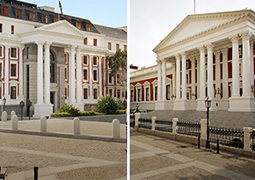
The concerns raised in the media, had never been tabled in the bargaining council and on the contrary, the local branch of NEHAWU had pledged support on numerous occasions.
It is crucial to reiterate that the renewed interest in raising concerns on vetting in the media has no roots in the platforms provided for in Parliament. The assertions and insinuations by the journalist and his sources are without any basis and are not substantiated by facts. The local union, NEHAWU, only sought clarity and satisfactory responses were given on numerous occasions.
To put the record straight, Parliament is satisfied with the comprehensive approach adopted and the way matters of security are being handled. In addition, Parliament wishes to see the security vetting procedures moved even faster.
This round of vetting was introduced in 2015, coupled with a comprehensive briefing of staff. These briefings are done on an ongoing basis to cater for essentially new staff members. All prospective employees being considered for employment, employees and service providers of all organs of state are notified that they are subject to vetting procedures in term of the Nation Strategic Intelligence Act, Act 39 of 1994.
The category or level of vetting is related to the nature of the institution and the job that is undertaken by the administration. Parliament is one of the three arms of the state, and the staff is employed to provide support services to key decision makers. In doing so, they would necessarily have varied degrees of access and proximity to key national decision makers, irrespective of their ranks and positions. Therefore, irrespective of their positions, staff would require appropriate levels of vetting. Parliament is happy that progressively many staff members have undergone security vetting including union members. Work continues in this regard.
ISSUED BY THE PARLIAMENTARY COMMUNICATION SERVICES
Enquiries: Manelisi Wolela - 076 062 2180

